
How one woman is trying to give foreigners a political voice in Switzerland
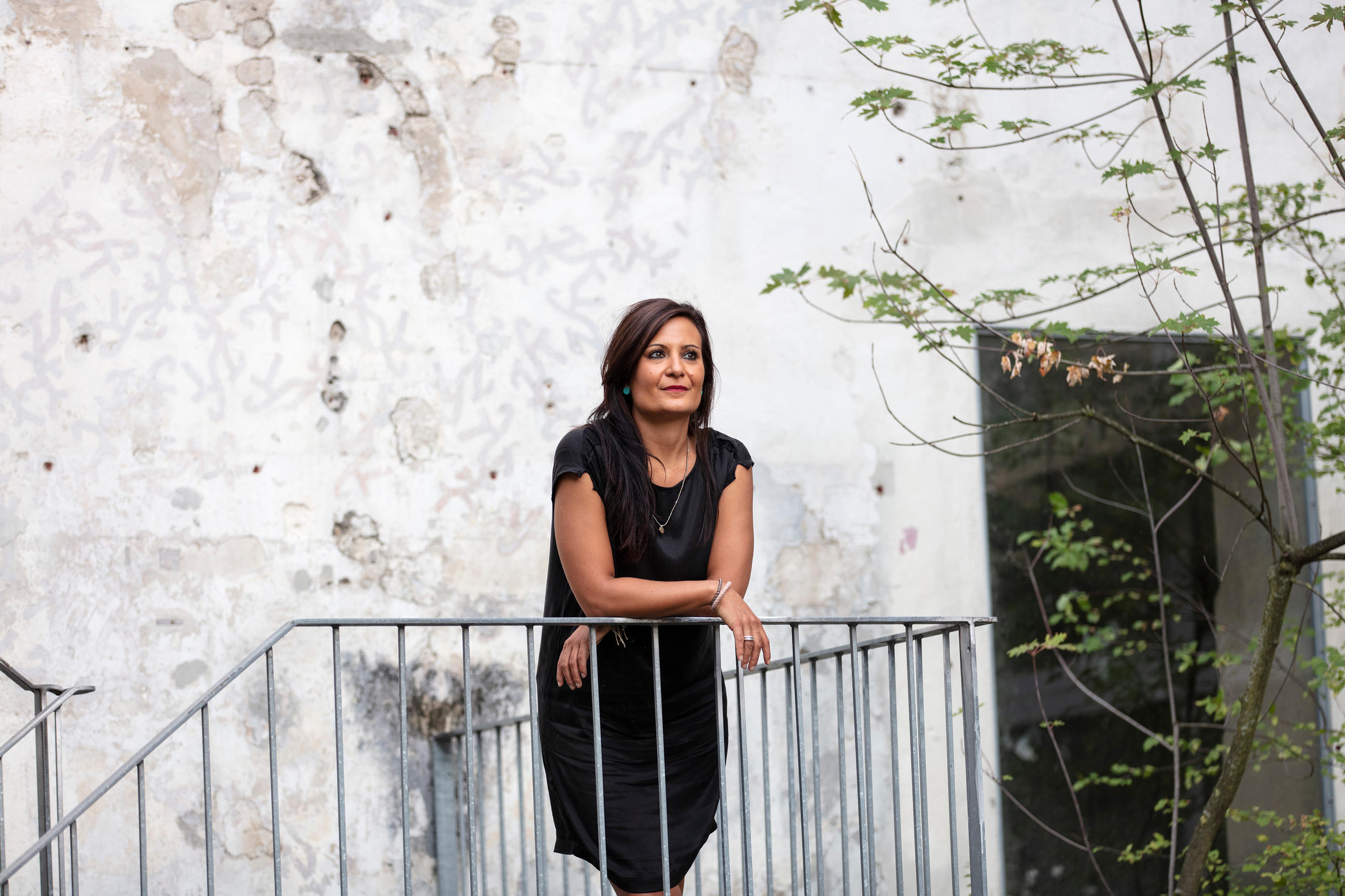
For the International Day of Democracy, SWI swissinfo.ch talked to two people who are trying to promote political participation in Switzerland. Zaira Esposito joined politics at an early age. These days she’s helping others have their say in the political process by organising parliamentary sessions for foreigners.
Asphalt, clattering trams, bustling crowds – this is Zaira Esposito’s neighbourhood in the Swiss city of Basel. It has been her home for 15 years, and it is here that she is working to promote political participation and inclusion for foreigners.
The 34-year-old is co-president of Mitstimme, a Basel-based association dedicated to giving non-Swiss residents a political voice. As such, she is more of an enabler than a politician. Among other things, the group organises yearly parliamentary sessions for foreigners – known as migrant parliamentary sessions – which take place in Basel City Hall. The next session is planned for this autumn.
Esposito was once a politician herself, although her first contact with democracy was far from urban Basel. At the age of 18, she was elected to the local parliament of her home village of Sessa, in the mountains of canton Ticino. She was even the president of the parliament for a year, at the end of her term in office.
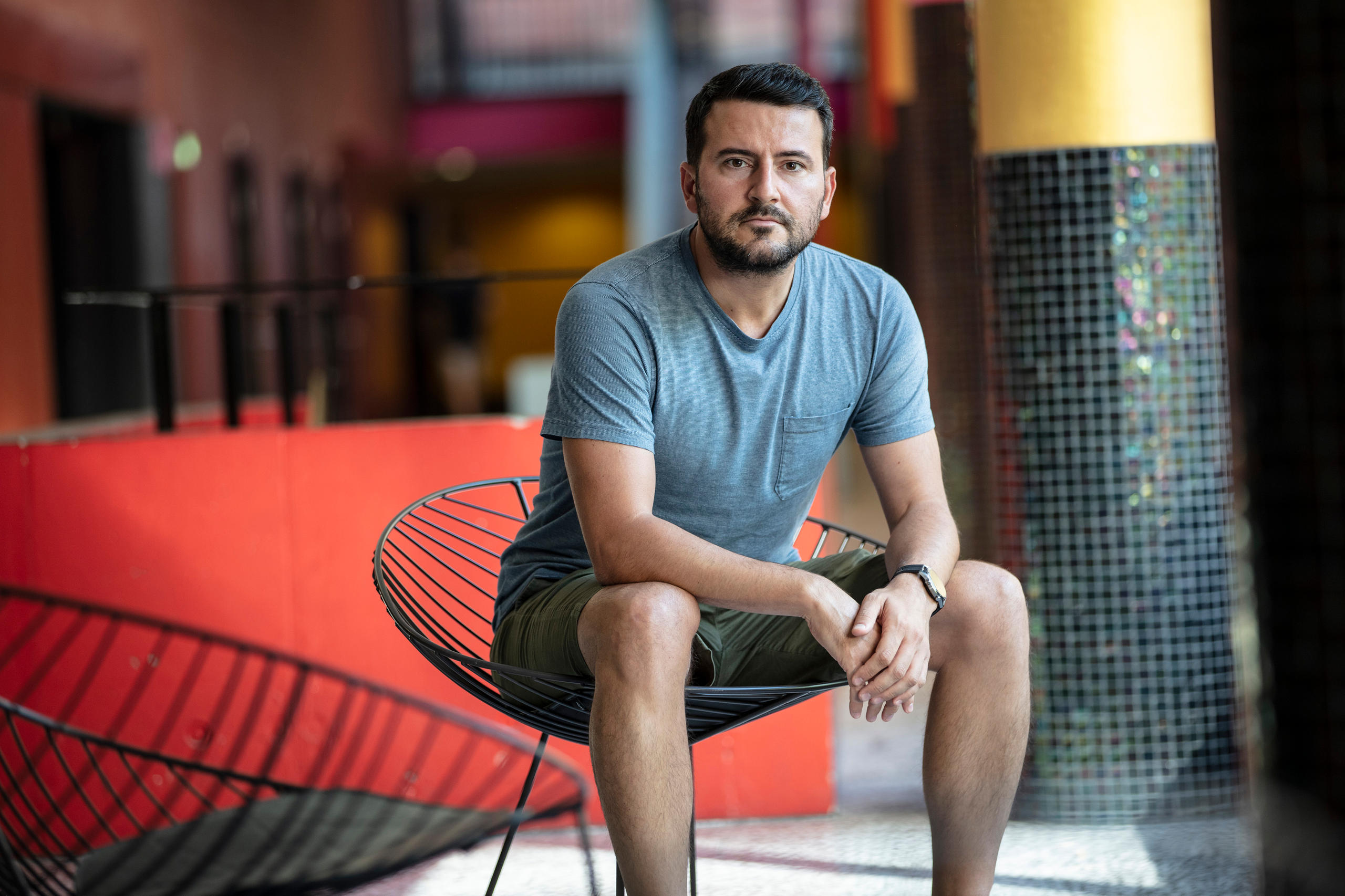
More
Time to rethink citizenship access in Switzerland
Here in Basel, people still regard her as a Ticinese, she says. In Ticino it was different. Growing up with a Swiss-German mother and an Italian father, she had dual nationality. However, the issue of political participation did not trouble her much during her early political career in Ticino. This only came about in Basel.
Migrant parliamentary sessions
Esposito takes out a small stack of papers containing decisions taken by the cantonal government, some flyers and a magazine on migration and political participation for which she co-authored an article. The magazine is particularly interesting, she says, because of the other articles. But anyone who reads her piece will be struck by the phrase, “The journey is also the goal.” Esposito does not want to put herself before the cause. The issue at stake is too important to her.
And this is the issue: people without a Swiss passport have no voting rights in Basel City. They currently make up 37% of residents, and that percentage is only increasing rapidly. As early as 2029, non-voters could outnumber voters, the Basel Office for Statistics warned before the pandemic. In political science, it is considered a democratic deficit if a minority decides and a majority is disenfranchised.
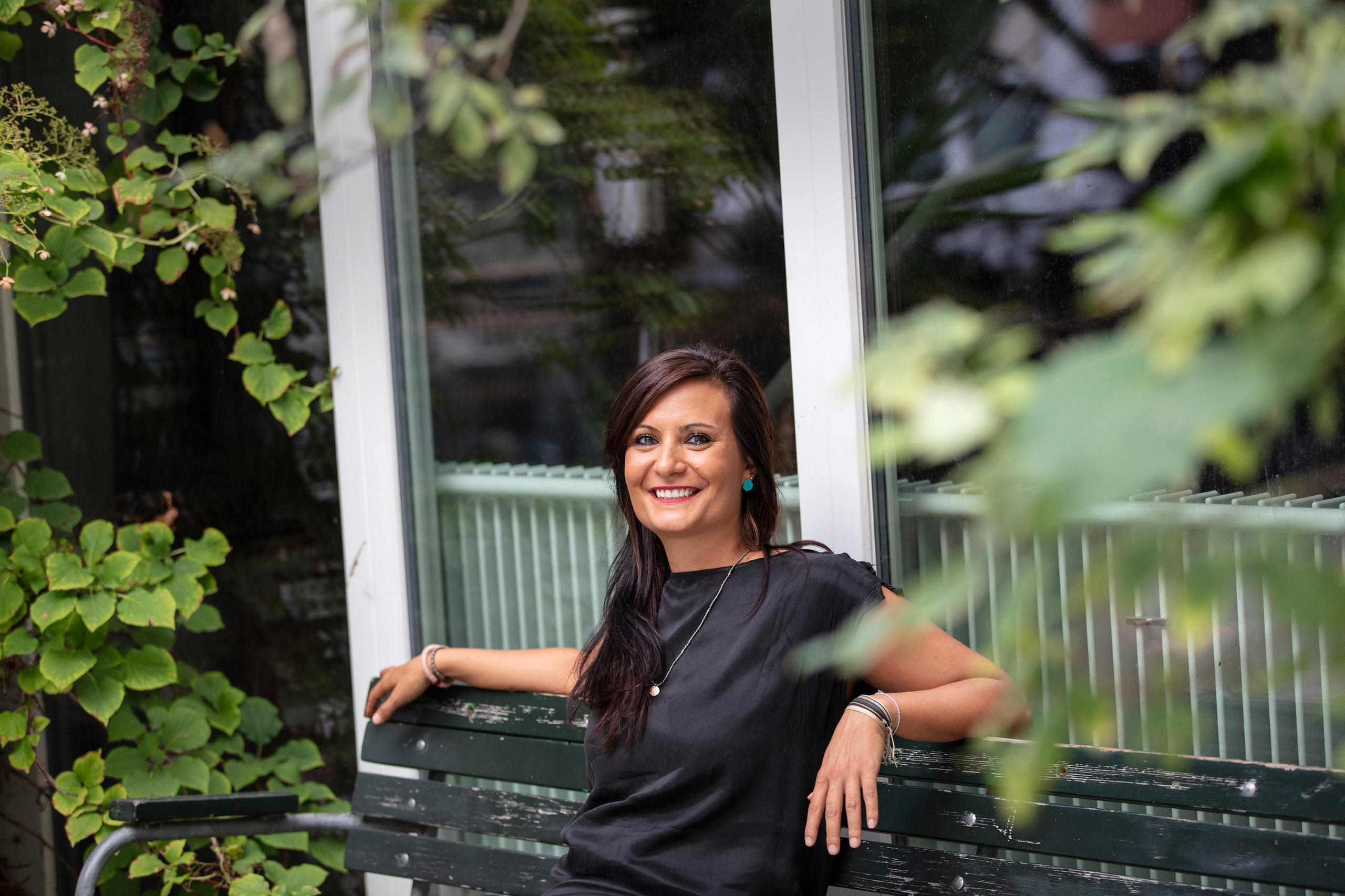
Esposito speaks enthusiastically about the educational afternoons she runs on the Swiss political system. Demand among migrants is high – although, often, the more they understand about it, the more disillusioned they become. That’s because people without a Swiss passport cannot participate in politics in Basel, not even at the municipal level.
Migrant parliamentary sessions
Esposito is now trying to rectify this deficit. With its migrant parliamentary sessions, Mitstimme has created a platform for people without voting rights to be politically active. During the sessions, non-citizens form working groups to discuss issues that are important to them.
Democracy is in its greatest crisis since the Second World War and the Cold War.
From a longer-term perspective, this is because of the trend towards authoritarianism and autocracy of roughly the last 15 years.
In the short term, it is because of the coronavirus pandemic and since Russia’s invasion of Ukraine.
Resilience is a key element of the debate about how to handle this multifaceted crisis: democracies should strengthen their resilience and robustness “from within” in order to be better able to fend off threats.
In this SWI swissinfo.ch series, we focus on a principle of democracy that has barely featured in the resilience debate so far: inclusion.
We introduce people who are fighting for “true inclusion” – comprehensive inclusion of all the biggest minorities. We will also hear views from the opposing side, which knows that the political majority in the country is behind it.
swissinfo.ch is organising an international panel discussion on inclusion at the Global Forum on Modern Direct Democracy 2022External link, which is taking place in Lucerne from September 21-25.
After the discussions comes decision-making in the main chamber of Basel City Hall. On this special Saturday each year, only people without a Swiss passport are allowed to vote. Esposito organises and coordinates the event, but wittingly stays in the shadows, a sort of lobbyist for political rights.
“On this day, the focus should be on those who otherwise have no political voice,” she says.
A proposal makes headway, slowly
Politicians of all stripes, even from the conservative right Swiss People’s Party, attend the sessions – although they mainly just listen.
Sometimes, however, they become directly involved in the process. Thus, in summer 2019, a Swiss politician, acting on the migrants’ behalf, tabled a series of questions to the cantonal parliament on the topic of health and migration. The results were available in time for the migrant session that autumn. In the plenary, the participants discussed the call for a government strategy on the issue, and the controversial question of whether removing barriers to medical care was within the remit of the cantonal authorities.
Then many green ballots were cast by otherwise voiceless people, and the migrant session demanded a government strategy on health and migration. The same politician then brought the matter before parliament as a call for “statistical data” and “coordination in the field of health and migration”. The matter proceeded to the government, where it is still being “dealt with” today. The political mills grind slowly. Success is a journey, not just a destination.
Celebration of democracy
It was after the last migrant parliamentary session that Esposito finally decided to join the Social Democrats and get involved in party politics. Again. She laughs. She rarely talks about her youthful political career in Ticino. Chairing meetings as president of the 24-member village parliament seems like ancient history to her. Sessa had fewer than 700 inhabitants. (Last year it merged with neighbouring municipalities to form Tresa.)
The fact that so small a community spread its political decision-making among so many people was in itself a celebration of democracy. However, 20% of Sessa’s population was made up of foreign residents. There was no provision for them to be represented. In that sense, the conservative mountain village was no different from urban Basel.
Basel last held a referendum on whether to introduce voting rights for foreigners 12 years ago, and it was a complete failure, even though the government was in favour of a compromise proposal. Now the city is about to vote on the issue again. But has so much changed for the majority of the population in the intervening 12 years?
Esposito does not dare predict the outcome of the vote, only venturing to say: “Discussion around the issue has matured.” Getting there is part of the challenge.
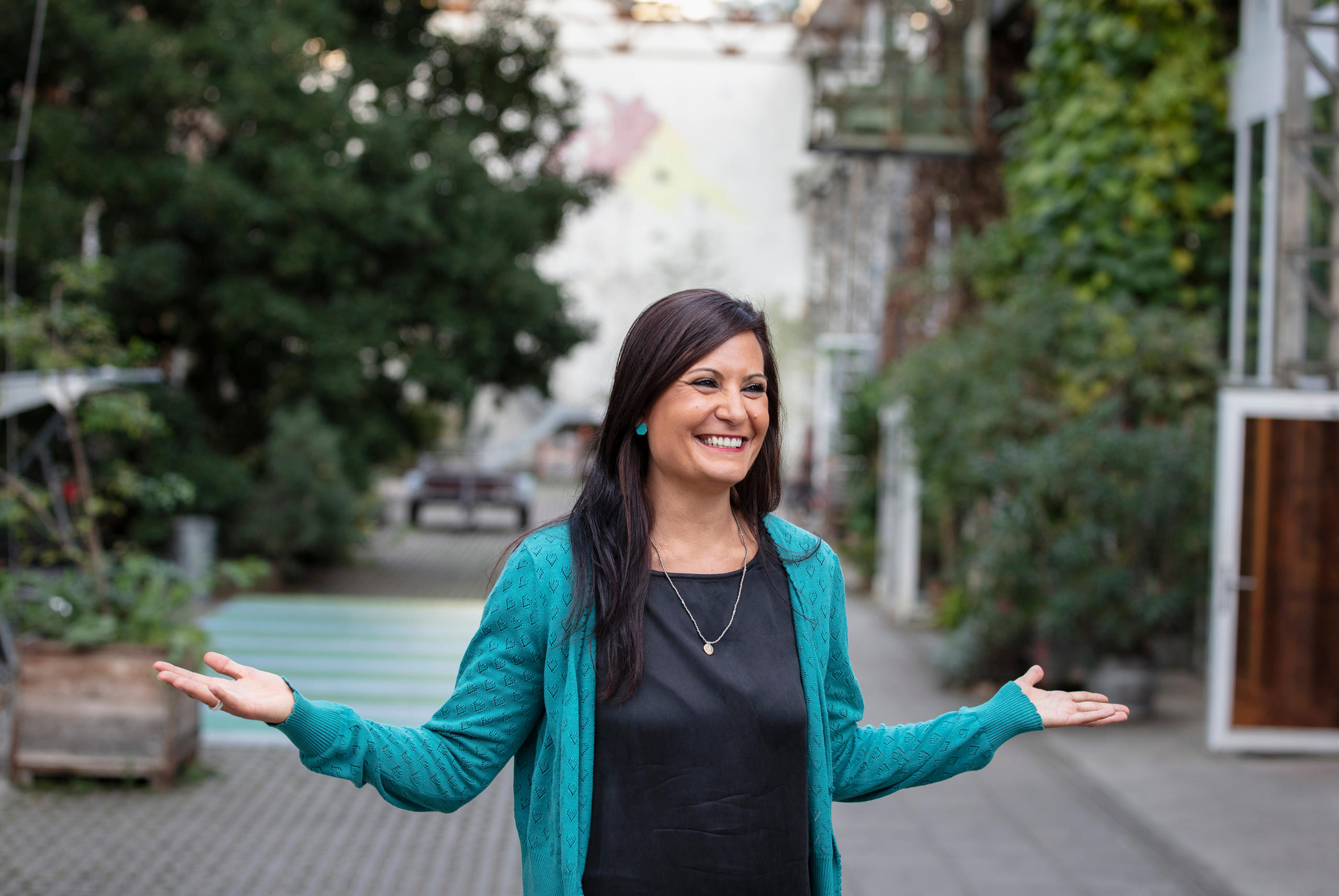
Inclusion rather than integration
Nevertheless, there are signs that change is afoot. The question before Basel voters is now about “voting rights for residents”, emphasising that it is about people who live in Basel City, rather than “voting rights for foreigners”, which stresses their otherness. The revised wording reflects a new focus on inclusion rather than integration.
Most of Esposito’s work today is aimed at promoting political inclusion. Back in high school, she was interested in the Iraq war and pending cost-cutting measures in education in Ticino – that is, international events and cantonal politics of the day.
So why did she commit herself to four years in local politics as a young person?
“We are all artisans of democracy,” she says. This sums up well her more recent political involvement, working with dedication behind the scenes.
Adapted from German by Julia Bassam/gw
More

In compliance with the JTI standards
More: SWI swissinfo.ch certified by the Journalism Trust Initiative



























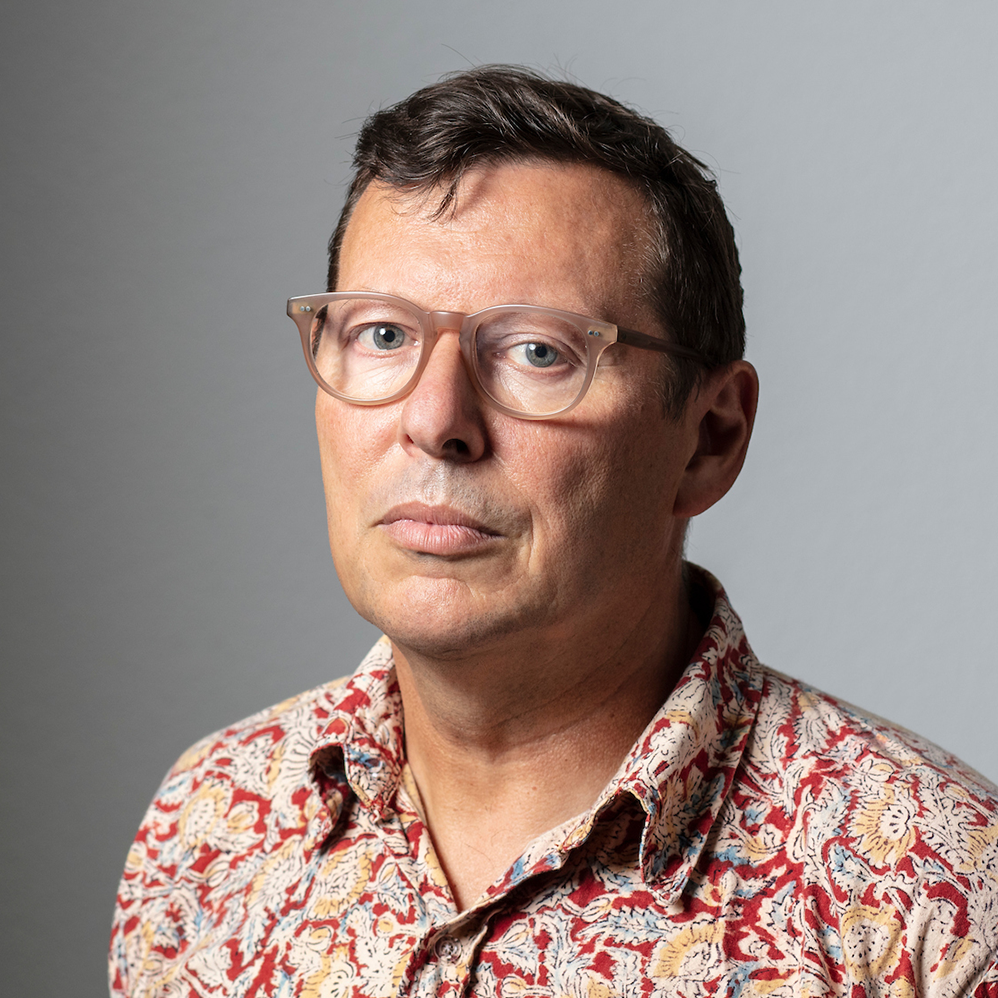


You can find an overview of ongoing debates with our journalists here . Please join us!
If you want to start a conversation about a topic raised in this article or want to report factual errors, email us at english@swissinfo.ch.